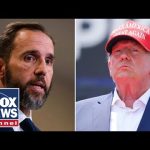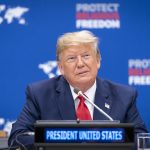In recent discussions surrounding the credibility of the press, the self-appointed guardians of journalism have voiced their frustrations with alternative media voices. An incident involving prominent figures from MSNBC highlights a growing concern among traditional news outlets about the rise of opinionated influencers on platforms like X, formerly known as Twitter. This tension between mainstream media and independent commentators raises important questions about free speech, the integrity of journalism, and the evolving landscape of information dissemination.
The sentiment expressed by figures like Joe Scarborough indicates a belief that not all voices contribute equally to the public discourse. He emphasizes that opinionated influencers who “pop off” on social media compromise the value of a free press. However, this view runs contrary to the very essence of what a free press should be: a marketplace of ideas where varying perspectives can flourish. When established media figures accuse alternative voices of undermining journalistic integrity, they risk alienating a portion of the audience that prefers these digital platforms for news and commentary.
Moreover, the ire directed at mainstream personalities like Rachel Maddow and Joy Reid for their takes on Trump demonstrates a paradox within the media landscape. While they claim to represent factual reporting, their content often leans heavily into opinion. This raises the fundamental issue of what constitutes journalism in today’s world. Is it enough to parrot established narratives, or should journalists challenge prevailing perspectives? By painting their competitors as illegitimate voices, traditional outlets like MSNBC miss an opportunity to engage with a broader spectrum of opinion and to hold themselves accountable for the narratives they promote.
The irritation expressed by established figures about the influence of non-traditional journalists reveals a fear of losing control over the narrative. They seem to forget that in a democratic society, every citizen has the right to speak and share their thoughts publicly—even if that means dissenting from the mainstream viewpoint. This is the bedrock principle of free speech, which is essential for a functioning democracy. The notion that certain media personalities deserve more authority simply because they belong to an established corporate outlet undermines this cornerstone of our society.
As the media landscape continues to evolve, it becomes crucial for all voices—traditional and alternative—to engage in thoughtful, respectful discourse. The backlash against opinionated influencers is misguided; it stems from a place of insecurity rather than a genuine concern for quality journalism. Instead of trying to drown out dissenting voices, established media should seek to engage with them constructively. The ultimate goal should not be to control the narrative but to enrich it with diverse perspectives that challenge, inform, and inspire dialogue among the public.
In conclusion, the battle for credibility among journalists is not simply a matter of who gets to speak on stage. It encompasses a broader debate about the roles and responsibilities of media in a free society. While traditional outlets may decry the rise of social media influencers, the real question should be: how do they adapt to this new landscape? Embracing competition rather than derogating it may lead to a healthier, more vibrant public discourse—one where all voices are heard, and truth can emerge from the cacophony of opinions.




